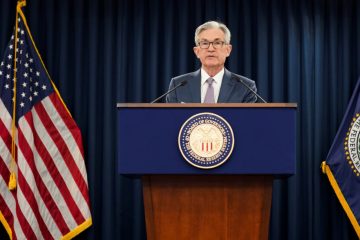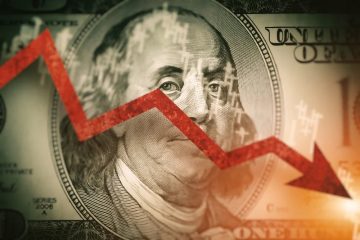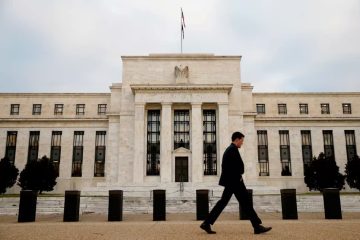Jamie Dimon Should Do ‘Some Homework’ on Crypto, Says Blockchain Capital VC

This article originally ran in Term Sheet, Fortune’s newsletter about deals and dealmakers. Sign up here.
Bart Stephens is the co-founder and managing partner of Blockchain Capital, the oldest and most active venture capital firm dedicated to blockchain technology and the cryptocurrency ecosystem. Its portfolio includes Coinbase, Ripple, and Abra. “We’re not betting on the price of Bitcoin, we’re betting on the adoption of blockchain technology,” Stephens says.
Oh, and he was one of the crypto panelists at J.P. Morgan’s SF offices while Jamie Dimon was bashing Bitcoin.
Below is a pretty frank and in-depth chat about cryptocurrency and the blockchain.
TERM SHEET: What do you think is one of the biggest misconceptions about cryptocurrency or the blockchain right now?
STEPHENS: The blockchain and cryptocurrencies have elicited an emotional response from financial incumbents. The technology is controversial and misunderstood, but that doesn’t make it any less real. I would encourage Jamie Dimon and others to do some homework first. It is not a fraud. It is not a Ponzi scheme. It’s a robust technology that is going to impact multiple industries in an additive way. Don’t discount it.
For too long, Silicon Valley has ignored the tsunami. Many of my friends who are at generalist VC firms dismiss this stuff out of hand because they’re not spending the time to do the homework.
Wall Street has been pretty skeptical of cryptocurrency. What are your thoughts on Jamie Dimon’s recent remarks on Bitcoin being a fraud?
While Jamie Dimon was making those comments, I was an invited speaker at JP Morgan’s offices in San Francisco to give a talk with other fund managers and clients of JP Morgan who are really curious about cryptocurrencies and the underlying blockchain technology.
So there’s a lot of hypocrisy going on with Jamie Dimon. But I would note that for every negative Jamie Dimon, I could point you to two positive Wall Street CEOs like Lloyd Blankfein at Goldman Sachs and Abigail Johnson at Fidelity, who are making constructive comments on both cryptocurrency and the blockchain.
Every new technology that is confusing, fast-moving, and disruptive is going to be controversial. You’ll see people have emotional reactions. That’s part of why Blockchain Capital exists. We know this industry requires specialization.
In the first half of the year, initial coin offerings raised more than $ 1 billion for blockchain-based projects — many of which consist of little more than a white paper. How do you tell scam ICOs from legitimate ones?
People are focused on the wrong thing. ICOs are a transaction, but the underlying idea of a tokenized network is more important. Tokenized networks enable entrepreneurs to have new options to finance their businesses. They can produce a token on top of the Ethereum blockchain that allows them to crowdsource capital — not just from investors, but also from future users who will help build the value of that network. Think engineers, other entrepreneurs, developers, and thought leaders.
I think we’re looking at an enlargement of the concept of venture capital. Like all new technologies, ICOs can be misused. There will be fraud, just like there are frauds in the regular stock market. Just because a technology is misused or overheated doesn’t mean it’s not a really important technology. And again, the idea of tokenized networks is more important here, not the ICOs itself, the transaction which people tend to focus on.
[TS NOTE: Tokenized networks explained here.]
How do you think ICOs will change the venture landscape?
There’s a deafening silence coming from Sand Hill Road when it comes to blockchain technology, cryptocurrencies, and certainly ICO technologies. To me, ICO technology allows for the re-imagining of capital formation. Early adopters and software developers are now invited to a party that’s traditionally been for insiders-only — Wall Street executives, Silicon Valley executives, or elite Sand Hill Road firms. So it doesn’t surprise me that Sand Hill Road is not interested in this technology. It’s opening up an exclusive party to other people who create value in the network.
Do you think there will be more and more of these startups that misuse ICOs?
I think that the best entrepreneurs will build businesses that involve venture capitalists and ICO financing. I think that there will be misuse of the technology just like there’s misuse of traditional financing technology. This industry is not immune from the foibles of greed and human psychology.
Blockchain technology – is it a zero sum game?
I think all blockchain technology is additive to the existing infrastructure. I don’t think it’s a zero sum game. I think there’s opportunity for startups to take serious market share away from companies that have ignored the technology. There will be winners and losers, but it is not a zero sum game.
In a previous Term Sheet, we talked about how Fidelity has been mining bitcoin for three years. What are your thoughts on financial institutions mining?
To me, mining is the least interesting part of this ecosystem. It is very capital-intensive. But it is often a way for individuals and institutions to better understand the blockchain infrastructure. So when my brother and I founded Blockchain Capital, the first thing we did was start mining. I don’t recommend people do it, but to me, it shows intellectual curiosity.
So the fact that large financial institutions like Fidelity are experimenting with Bitcoin mining shows me there’s interest on behalf of financial incumbents.
How do you avoid crashing if this is all just one big bubble?
First, I do not think it’s a bubble. If it is a bubble, it won’t hurt Wall Street, and it won’t hurt Main Street. Second, scale matters. The market cap of Bitcoin, if you want to think of it as an equity, is roughly $ 70 billion. That’s about the same market cap as one publicly-traded fintech stock called Paypal. That’s the smallest bubble I’ve ever seen relative to the scale of other financial crises.









